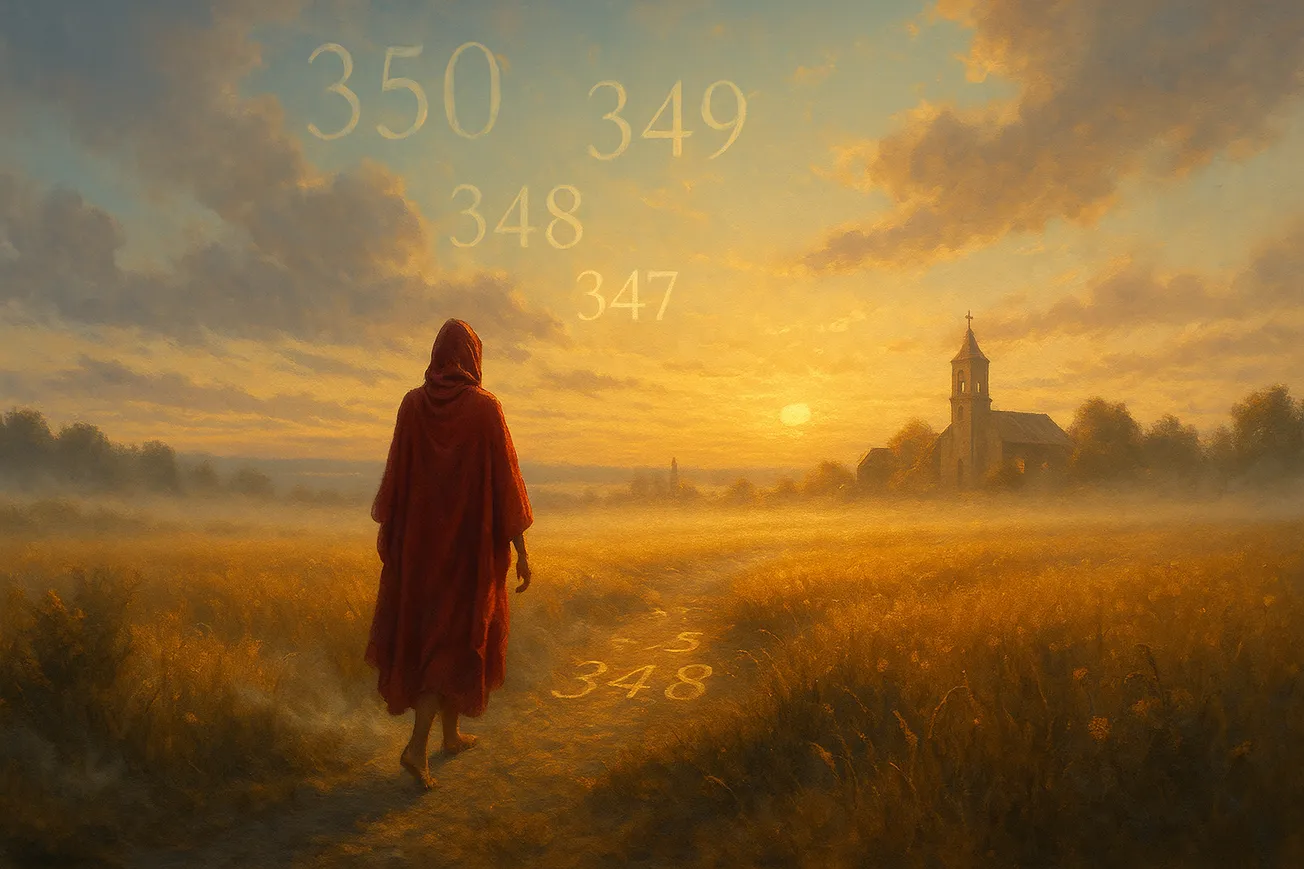🌈 The Fractal Story Engine | Mind & Meaning | (37) MM-009-S
The number appeared on the inside of her eyelids the moment she turned twelve.
Three thousand six hundred twenty-one.
It pulsed faintly in the dark behind her lashes, soft as a heartbeat, immutable. She told no one. She simply began to count.
Each morning, the number shifted down by one. No pain, no ritual, no warning. Just the truth, descending like sand through a thin glass stem.
In her village, no one spoke of the numbers. They were known, but not acknowledged. The way a body knows death is real, yet still plants seeds.
Some children laughed longer, cried louder. Others grew quiet and precise. But all of them counted.
On her fifteenth birthday, she met a boy who confessed his number was low. Seventy-two. He whispered it while they knelt near the creek, hands cupped to the water. She watched him drink and tried to imagine what it would be like to feel time not as river, but as flood.
He died the next spring.
A fever took him quickly, and she stood in the second row at his burial, reciting her internal count like a rosary. Two thousand eight hundred fifty-one.
By twenty, she had stopped making plans beyond the horizon of her number. People in the city offered medicines to ease the fear, but she declined. She wanted no ease. Only clarity.
Some spent their lives chasing extensions: sacred routines, precision calculations, or tinctures brewed from myth. Others tried to blind themselves and called that salvation. She did neither. She carried the count as a sacrament.
The years moved, and so did she. Village to valley, city to island. The number dwindled. One thousand, then eight hundred. Then three hundred and one.
On the morning she woke to one hundred left, she found an old man sitting by the sea.
He was drawing spirals in the wet sand with a cane.
“How many?” she asked, uninvited.
“Fifty-three,” he said, not turning.
“Do you regret knowing?”
He paused, letting the tide kiss the edge of his latest spiral.
“No,” he said. “But I regret waiting.”
“For what?”
“For the number to make me live.”
They sat together in silence, not the kind that forgets how to speak, but the kind that listens.
At night, she began to dream in reverse. Her childhood returned in fragments: apple skins and rain buckets, her mother’s fingers stitching blue thread into the hem of a dress. The past walked backward toward her, and she greeted it.
With thirty-seven days left, she hiked into the highlands. At dawn, she found a hollow where the wind sang through stone. She built a fire. She made tea. She wrote letters and buried them under flat rocks.
With sixteen days, she stopped counting.
Not by choice, but by instinct.
The number still ticked on inside her, but she no longer chased its meaning. It became a rhythm rather than a reckoning. Her breath synchronized with it. Her step followed its pattern.
On the final morning, she dressed in red and walked barefoot through the village.
The children stared. One approached.
“What day are you on?” the girl asked, wide-eyed.
She smiled gently.
“I don’t know.”
“But don’t you want to?”
“No,” she said, and offered the girl a seed from her pocket. “I just want to be awake.”
She passed beneath the bell tower and into the fields.
And that night, the number stopped.
Not with a scream. Not with a sigh. But the way a candle knows it has burned enough.
The wind carried her breath into the trees.
Somewhere, a child opened her eyes to a new number.
And began to count.

